From 3 years ago
Mar 11, 2017
Finding friends as an adult #
All throughout school, you're surrounded by people, so making friends just
almost happens by circumstance. You're starting off on your first day of grade
school and you're surrounded by people in the same situation. You don't need
to go out and seek them, as a kid, you don't have anything you're looking for
in a friend. And all throughout the various levels of education, making
friends is easy because everybody is there with a common aim of learning.
You're surrounded by many people in similar stages of their lives, young
adults looking to get an education and determine their purpose.
But then after you graduate university and you're off into the work force,
suddenly you're no longer surrounded by people with which you have the option
of picking and choosing to be your friends. It becomes work to go and find
like minded people, people with who you can hopefully develop more of a deeper
bond than just a superficial one. You have your work friends, people you see
everyday and banter with over coffee, but often those kinds of friendships are
there because of occurance, you see each other everyday, and it's only natural
to talk everyday.
Everybody else you meet might be in a different stage of their life, maybe
they're looking for friends to drink with every night, maybe they're looking
for friends that will aid them in their marriage, maybe they're looking for
friends to encourage them. But all those different types of people exist out
there, it's just a matter of going out and talking to people, and seeing if
you can connect with them. So what I've been doing is just going out as much
as possible, talking to as many people as possible, and just doing the work,
because it really is hard work. As an introverted type, forcing myself to go
out and to chat with people, to endure the small talk to hopefully get to the
real talk, is tiring.
Establishing a routine #
Having a routine helps to develop a sense of home, and a sense of belonging.
Shopping at the same supermarkets, establishing yourself at the local bar,
just being able to see familiar faces around helps to make you feel more at
home. It makes it way easier to walk by and see that there's somebody you
know, so you can stop to have a chat, because that's what really makes
everything feel more familiar, when you can randomly see friends around. When
everybody is a friendly face, the pieces of life feel like they're starting to
fit into place.
Apr 21, 2017
So it's been 3 months #
Just the other day I had somebody ask me what my plans were for my time in NZ,
whether or not I was going to stay for a year and then bugger off, or try to
stay here. And what a good question it was. I didn't (and still don't) know
the answer to that question since I hadn't put too much thought into it. I
mean, a year seems like a pretty long time, that's 12 months, 52 weeks, 8760
hours. But then I realized that I've been in Auckland for 3 months already.
That's already ¼ of a year and it really put it into perspective.
But within the 3 months that I've been here, I don't think I've really found a
compelling reason to settle down here and stay. Maybe the first year I'm here
will lead to me extending for another year after that, but I don't see New
Zealand as home within 5 years. Auckland itself is growing very quickly, and
it's a bit exciting to see changes in a city that is so similar to how
Vancouver was maybe 20 years ago. But at the same time, the growing pains of
the city leads to a sort of political dissonance between the citizens and the
government. So many people understand the problems in transportation
infrastructure and the issues with house insulation, yet not much is being
done.
Moving to a new place, you will be hard pressed to not give up some of your
former luxuries, and it really makes you question what is needed. When does
"going outside your comfort zone" become more of a pain than simply an
accepted challenge? I mainly moved to New Zealand because I wanted to
challenge my character, and to develop myself by being forced to be in a new
environment. So looking back, what have I accomplished, and what did I find
difficult?
Making new friends #
I've touched on this in my previous post, but making new friends is difficult
for everybody. The act of going out, talking to people, connecting with them
is usually not so easy. This becomes even more difficult when you're trying to
figure out what you enjoy doing, or are you doing it just because you want to
meet people? I've found that it's okay to have multiple groups of friends, for
the different moods of your life. But at the same time, I think it's also okay
to have not many friends and just have people you see to remind you that
you're still a functional person of society.
Learning new things #
This is vague on purpose, since learning is a continual process and it is
tough to say what you actually learn if you don't use it. I was originally
going to say "trying new things" but that sounds even more cheesy. But for the
most part, I have found that New Zealand uses meetup.com a lot, and it's easy
to find groups to do new things and try new stuff out. I've been filling my
time mainly with tech related meetups but it's refreshing to see how welcoming
all the groups have been. Putting myself out there and just doing things has
resulted in a great time.
Winning a tech challenge has definitely been the highlight of the first 3
months, and it has really sparked a fire within me to build more, and to find
more like minded people to do the same. Often I wonder if I should be spending
more time working long hours, writing more code, learning more, because I
still can while I'm young. I'll be looking to enter more hackathons and
hopefully finding some hack groups to just bang out some random apps on a
weekend, just good ol fun times.
Sacrifices #
But at the same time, doing one thing means you're not doing something else.
Often I find myself questioning if I should be doing one thing or the other.
This seems silly, but I think I spend way too much time thinking about such
things. Like if I should spend a weekend riding bikes, which is something I do
quite often and really do enjoy, or if I should spend a weekend off on a road
trip exploring something new. And I don't have an answer on how to balance
this dilemma which I face quite often. But this weekend I'll be spending my
time riding bikes.
May 22, 2017
I haven't talked about it here yet, but since it's been awhile since I've
written anything new, be it technical or just rambling, I'll say that my
friend and I have been making podcasts. We're both new to making podcast, and
we're both not super interesting, but to us it's kind of a way to just catch
up and chat about technical topics, and then also non-technical topics.
You can find us on soundcloud, but we need a better name
Creating content that goes into the abyss, with the expectation that nobody is
ever going to consume it is a bit refreshing, since you yourself set the
standards. So the podcast vary in quality as we are experimenting with how
much effort we want to put into the podcast, and how much editting we do, and
just overall it's a journey.
Feedback is always greatly appreciated.
Feb 4, 2017
YVR-NRT-ICN-PVG-AKL #
As if moving across an ocean wasn't an arduous enough of a journey, for my
move to Auckland I decided that I'd try to limit my time on a flight to be
less than 10h and also stop within a couple cities in Asia to visit my
friends. It's been awhile since I've been to Asia, around 4 years or so, and
so I wanted to visit my friends in Shanghai and Seoul. Not sure why, but I
decided it would be a grand adventure flying with 1 overweight suitcase and 1
bike box, what could go wrong?
Flying with Japan Airlines from Vancouver to Narita, I wasn't charged for my
bicycle box, using it as my second piece of luggage. My suitcase was
overweight, so I was charged for that.
YVR-NRT #
Upon landing in NRT, I found out that my connecting flight to ICN was
cancelled, but JAL booked us into a hotel in Narita for the night. This meant
I had to get my luggage, and I got to see how my bike box was looking after a
10 hour flight. One of the most useful pieces of packing my bike box was
wrapping the entire box with 2 bicycle tubes. This gave a sort of handle for
people to grab it by, and also helped hold the box together. ¼ flights all
good.
NRT-ICN #
The next flight was a short 2h flight from Narita to Incheon. I wasn't
expecting any troubles, and didn't run into any troubles. Within Incheon
airport there are luggage storage services, where you can put your bags for a
fee and then come back to get them. This let me leave my suitcase and bike at
the airport, and then I could go pick them up before checking in for my final
leg of my journey. 2/4
ICN-PVG #
The last leg of the journey involved flying from Incheon to Auckland, with a
layover in Shanghai. This was the part of the journey that I learned the most
about different airports, and fees. I flew Asiana Airlines from ICN to PVG,
and then Air New Zealand from Shanghai to Auckland. Since I was flying Air New
Zealand, I had to pay whatever fees that Air New Zealand charged. I booked my
flights without realizing that my ticket didn't have 2 pieces of luggage
allowed. So this time I had to pay for my overweight luggage, and then also
pay for my bike box.
To make matters more complicated, when flying through Shanghai, unless you are
on a select partnered airline, you have to go through customs and get your
luggage and then check it in again. This means that a 2h transfer might
actually not be enough time depending on how long the queues are. Luckily I
planned it so that I would have a 13h layover, giving me time to go into the
city. Shanghai is one of the cities where you are allowed a temporary visitor
visa if you are connecting in Shanghai, and have another ticket out of
Shanghai. Again this meant I had to get my luggage and then find storage.
Luckily everything went smoothly and I hopped on the maglev train for a 8
minute ride into the city. ¾
PVG-AKL #
My last flight was the 11h flight from Shanghai to Auckland. No issues
whatsoever and my bike arrived safely. A closer inspection showed some holes
forming in the box, but being handled on 4 different flights, I didn't expect
anything less. Everything inside was fine, although I might've packed my bike
cables in a bad way that lead to some creasing. 4/4
In conclusion, I probably wouldn't suggest doing this kind of flying if you're
moving your life. But being able to see all my friends is priceless.
Oct 27, 2017
I strongly believe that in order to do my best work, I need to take time and
recharge my creative juices once in awhile. Weekends are a small form of this,
but usually they end up being too short, or I spend my weekends using up even
more of my thinking power. Another good addition is just to get away from the
hustle and bustle of your daily routine and be able to evaluate your habits.
Usually for me this means going out into nature, a place where you aren't
connected to the internet and the rest of the world, but connected to yourself
and your environment only. This let's you really get away from habits that you
may have developed without knowing, like constantly checking your phone for a
notification. This is especially relevant in this generation of technology,
where applications are designed to slowly change your habits without you
realising. You will get withdrawal and it becomes obvious that some habits you
are better off without.
Stepping away from it all also allows you to gain perspective into your life.
Maybe those big problems you've been worrying about aren't as big of a
problem, or maybe you'll figure out a way to mitigate a big problem. Stepping
back and abstracting your life is always a good routine.
# Jul 17, 2017
Something I've been thinking a lot about lately is the difference in mental
capacity of school vs work. I'm sure this doesn't apply as a blanket statement
for all jobs, but with my current work I find that my focus is over spread
across multiple projects at the same time. I remember when I was younger, I
used to think that multitasking was something that I could do easily; thinking
about multiple things at once and working on all of them.
Sometimes I get asked about if I'm considering going back to school for a
postgraduate degree or something like that. And currently my answer is that I
don't currently have an idea I'd like to focus on yet. Often with work, I
don't get to spend much time on a project before I have to shift my focus to
something else that is more important. There is so much of my time that isn't
under my own control because the priorities shift from underneath me. Whereas
in school, there were always clear deadlines and you knew when you had to get
stuff done.
This largely comes down to me wishing my work involved a deep dive into a
project for a week or two, focusing solely on one thing and getting it done.
And then moving on to the next one. This falls largely into agile methodology
and setting deadlines and tasks so that there is always a queue and everybody
knows what the priority is.
But this breaks down when there aren't set deadlines and set priorites, which
has me always wondering how much time I should spend on a task.
# Jul 27, 2017
Time sure went by quickly.
But I feel like it's taken 6 months for me to get "settled" into NZ. Not
really sure what that means, but maybe it means that I feel like I'm already
looking towards the future to see where it brings me.
Some things about NZ:
- pies are delicious
- flat whites are also delicious
- spicy food is rare
- the weather changes very quickly
- seaonality + island nation makes for great variety
- housing standards are quite poor, not many properly insulated houses
Things I've done in the past 6 months:
- went to a concert in a vineyard
- sailed from Auckland to Waiheke
- won a tech competition
- competed in the New Zealand Aeropress Championships
- made friends and then have said friends get deported from NZ
- went to an All Blacks rugby match
That's a quick brain dump for now.
# Sep 4, 2017
I was originally going to write a more tech related post with the same topic,
but I came the realise that it could also be more of a general topic.
How does one measure personal growth and development? #
A question I find myself always coming back to is "How does one measure
personal growth and development?" As we age, we are always going through
periods where growth and development are accelerated, like as a young kid,
your environment is what contributes to your growth and development. Then we
reach a period of highschool, where we are taught the basics of
institutionalised learning. And after that, we are in university or secondary
learning phase, where we are prodded with more deep thought provoking
questions.
All these different periods in life we are growing, but for me it wasn't until
after/during university that I really pondered the metric of growth. My angle
is that I began to wonder about how to effectively continue to grow, and
develop in skills that I think would be important.
Routine #
A procedure that you follow when applied with a task. Passing through those
phases of growth and development, you pick up and build your repetoire of
routines: brushing your teeth in the shower to save time and water, always
writing questions as part of your note taking, staying away from electronics 1
hour before bed.
I firmly believe that these routines are integral to growth and development,
because once you have a routine set in place, it allows you to spend your time
thinking and doing other tasks that may one day become routine. As somebody
who comes from a scientific background, the routine of applying the scientific
process to experiments and problems has greatly improved my efficiency.
Instead of having to spend time thinking and wondering about how to approach
problems, I am able to autopilot and apply a problem solving routine that
allows me go through my mind's rolodex of routines.
Opinions #
"Everybody has one, even if they're wrong"
Now I was originally thinking about this more from a software development side
of things. As a more junior developer, often you don't have many strong
opinions about what tools to use, what software paradigm to follow, etc… But
lately I've been thinking about how important it is to be strongly
opinionated, as long as you are open to discourse. But opinions in general are
tools that you can use to create discourse, although there may be situations
where the outcome may not be what you want.
I think that having an opinionated mindset will force you to think about
certain tools you are using, and also force you to constantly question whether
or not your opinion is correct. Such is the case when dealing with data
analysis, you form an opinion on the data, and you must be able to strongly
prefer one result or the other.
I think this post could've been stronger, but I got distracted by work…
# Jan 2, 2017
My solo trip to Guatemala in 2016 #
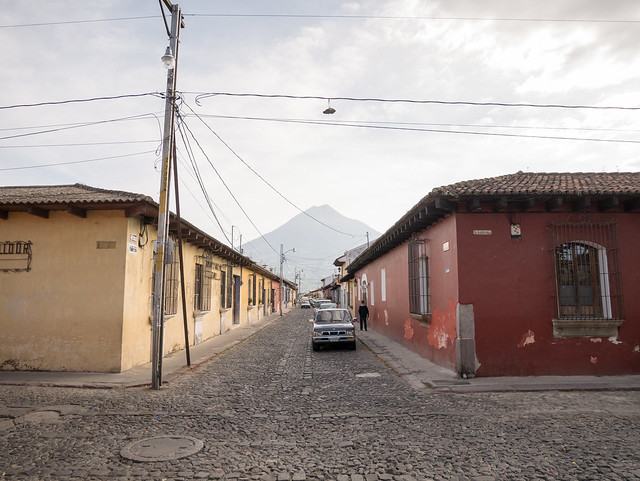
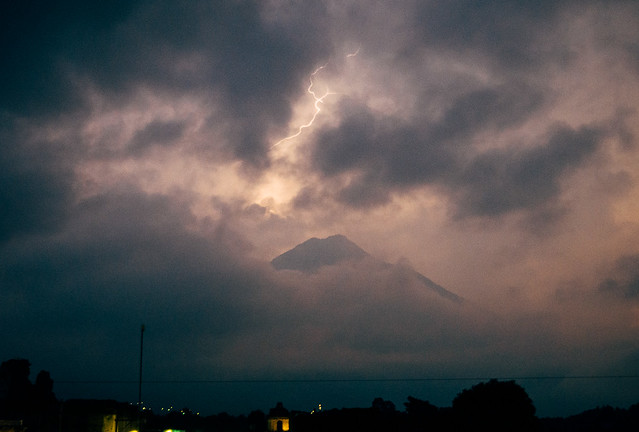
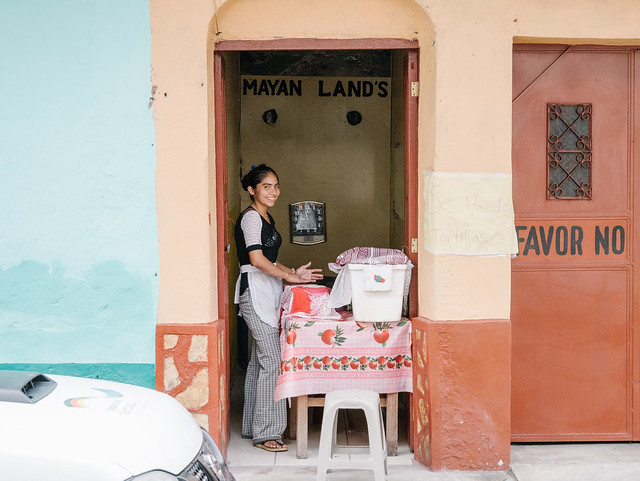
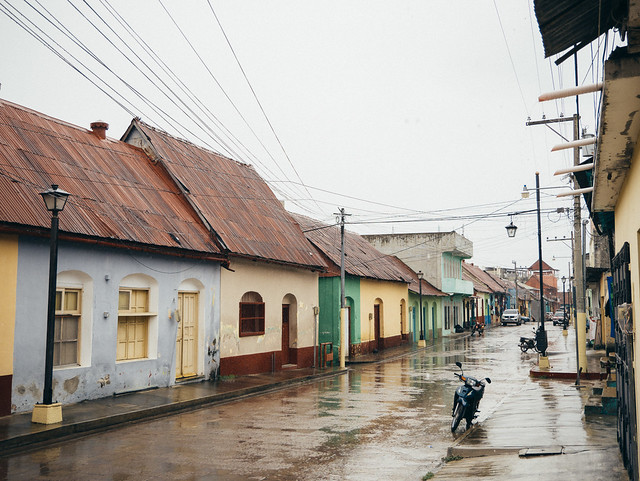

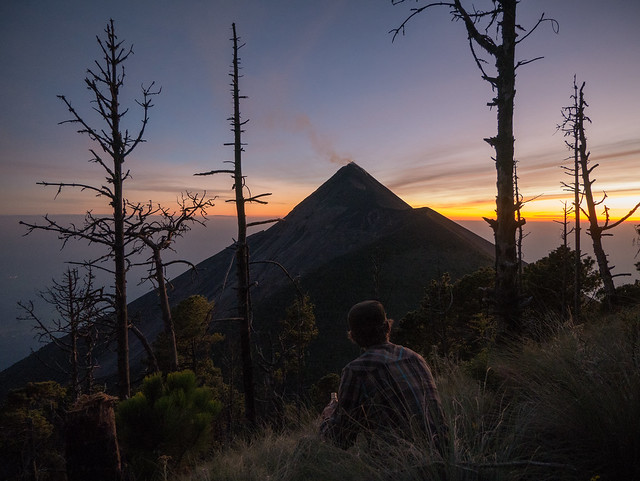
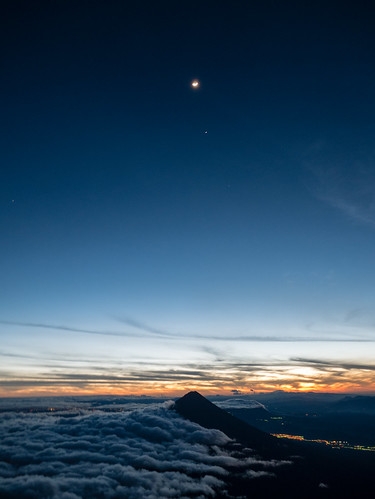
# Jan 27, 2017
Why did you move to New Zealand? #
I've gotten that question from friends, strangers, and pretty much anybody who
has wondered why I got up and left my life in Vancouver and moved to Auckland.
It's been over a week since I've landed in Auckland, almost 10 days to be
exact because my Airbnb runs out tomorrow. I grew up in Vancouver, went to
elementary school there, went to highschool there, went to university there.
The only time I ever left home was to work in Ontario for 16 months, and even
then I knew that my path would lead me back home, since it was only an
internship. Personally, I was very comfortable in Vancouver, I had a job that
wasn't too stressful, I had friends to hang out and have fun with, and life
was good. Without sounding privleged and entitled, and I understand I am, I
felt that I wanted to experience what might else might be out there for me, so
why not?
2016 was a big year for me, and I felt that within the year I learned lots.
Learning both about myself, but also learning about others. Moving to a new
city, a new country, across the ocean, worlds apart, has forced me embrace
change and to step outside my comfort zone. But I'm young, and this is what I
think is good for me, to learn these things now rather than later. I had
originally much different plans for 2016 and 2017, but I was young and naive.
Everything is always sunshine and rainbows until it isn't.
What are your plans for here? #
That's another question that I've been asked often, probably because I'm
looking for a place to live and landlords want people for long term mostly.
It's already been a very introspective week, finding a place to live and a
place to call home. Do I want a social house? Or a quieter house where I can
come home to relax? How do I sound ideal and cool to the other roommates? What
do I actually enjoy doing?
These are all questions that I've been asking myself since arriving, and it's
been a real test of self character. I've never really considered all these
things before, and until now I'm still not really sure what my plans for
living in Auckland are. I think I'm almost too carefree about it, most of my
friends are worrying way more than me and I feel bad about making them worry.
But I'm confident everything will work out, and I'll be alright.
# Jan 4, 2017
What happened #
A big part of why I wanted to create this part of the blog was to separate
technical talk with just rambling and thoughts. I wasn't sure if I wanted a
place for photo essays, or a place for personal experiences, or a place where
I just put my experiences; I figured they were all collections of thoughts, so
this is what it'll be for now.
2016 as a year was very eventful. I started a remote job working as a
developer for a New Zealand based energy services company. I'd been looking
around at jobs where I felt like I would be solving interesting problems, as
well as being in an environment where I thought I would be able to learn the
most. As an aside, I've been reading Creativity Inc a book about Edwin
Catmull 's journey with Pixar and also as a prominent computer graphics
expert. The book talks about creating an environment where smart people are
encouraged to become smarter, and to collaborate with each other. I realize
that's what I enjoyed the most about being in school, being surrounded by
people who were just as eager to learn and to share with each other.
It took me awhile to realize that this kind of environment is one that I
always try to seek out, because it's the kind that I am able to thrive in.
Although I am able to work alone, I am definitely not as productive as I have
come to learn in 2016. The job I took would be working remotely from wherever
I wanted, as long as I made the hours work to overlap with the New Zealand
timezone. This kind of work would be completely new to me, and I figured "why
not". It seemed like an interesting experience, and even though it might be
challenging, I knew that I had the self discipline to make it work. What I
didn't anticipate is how much I missed working with other people, or just
being around people who I can throw ideas off it. In this modern age of
communication, it's easy to write an electronic message and wait for somebody
to respond. This works well, but after 10 months of working that way, I'm
ready to work in an office with coworkers that I can see, at least have the
option to see.
Working remotely #
The reality is that once you start working, work kind of becomes what you
spend most of your hours doing. This always pops up in my head whenever I look
out the window and see the snow capped mountains, or the sunshine and blue
skies. I always try to make it a priority that I get outside everyday, even if
it's for a small amount of time. All this is part of creating a schedule that
I stick by, since as a remote worker it is very easy to be effective if your
working hours aren't structured. I would always set myself a loose outline for
the day, something like:
- breakfast coffee, go for a walk
- emails/tickets/calendar
- catch up call (if needed)
- work on ticket
- lunch
- go for a run
- standup with NZ
- work on ticket
Of course all this is loosely set, but having a general outline makes it
easier to form a habit of it all, and then it helps with the whole process of
working at home. I find it really really helpful to take breaks often, the
middle of the day break that splits a working day into two is helpful,
especially if you're waking up early.
Not looking at any differences in money, here's a list I've made of pros and
cons: Pros 1. Flexible hours, if you need to be somewhere else you can
be. You can go for runs/walks during the day 2. Flexible working location, I
usually made an effort to work from a different place every Friday, usually
coffee shops but sometimes I tethered and worked from a park or the beach 3.
You can choose your own work. Of course this is quite variable, since
sometimes you have to take on work just to pay the bills 4. No need to deal
with management.
Cons 1. Face to face interactions, sometimes water cooler talk leads to
great ideas. Whiteboarding is more difficult. 2. Taxes. 3. Harder to learn
on your own sometimes.
Those are the ones I can think of right now, but I'm sure there are more.
Travel #
I don't think that I made solo travel a priority in 2016. What I realized
during my solo trip to Southeast Asia in 2013 is that although it is super fun
to travel solo and to connect with like minded people, the connections you
make are harder to reinforce. What I'm saying is as I've gotten older, I've
been trying to search for more meaningful relationships, spending time to be
more selective about where I go and why. With that in mind, the large quantity
of trips I made were to the United States last year, where I visited Seattle
many times but also went down to the California Bay Area a handful of times as
well.
There was the in person interview at Solarcity in San Mateo, where I also
spent the weekend in San Francisco, crashing at my friend's place. Then there
was a bachelor party in Hawaii, with the wedding in California. There was the
time I flew to NYC because my friend had an interview, so his hotel room was
compensated. Since I was already over there, I also went up to Montreal to
visit some other friends, including a friend that I had never met before but
had known for awhile from the internet.
As I'm writing all these out, it's so easy to just list them all,
compartmentalized as "places I went in 2016" but really I went to these places
to see friends that I've known, and to create memories. Every single trip had
it's memorable moments, moments that make me look back and smile because they
were great. But of course they would, I had that intention in mind when I
went, and I made it so.
The only trip that I didn't have any real purpose in mind, was when I booked a
flight to Guatemala because the flights were really cheap. The single most
memorable thing from that trip was probably the trek up Volcan Acatenango. It
consisted of a hike during the day up to around 800m below the summit, where
we set up camp and then the next morning we hiked up to the top to watch the
sunrise. But it was really the company of hikers that I enjoyed, where we each
shared stories as we hiked up together, and for some this was probably the
most difficult thing they've ever done. I made it an effort of mine to not
just go there to see the tourist attractions, but to try and see how the
locals lived.
What's next? #
As I'm writing this, there are only 10 days left before I leave Vancouver and
head to New Zealand on a working holiday visa. Before I get there I'll make a
stop in Seoul to visit a friend, and a layover in Shanghai to hang out with a
friend I haven't seen in awhile. So 2017 should have many new adventures and
experiences.